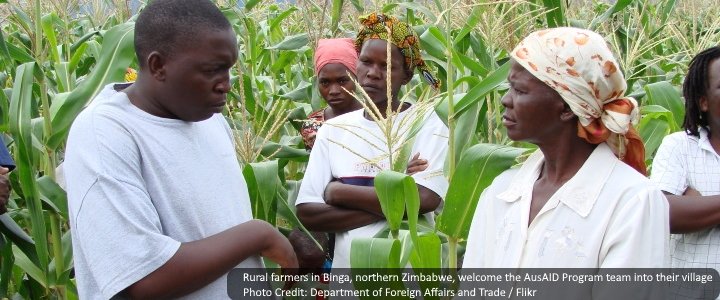Welcome to ACFID’s latest Spotlight on the Code of Conduct series. This time we are focusing in on Quality Principle (QP) 4 of ACFID’s Code of Conduct, all about…quality and effectiveness!
Quality Principle 4 recognises the importance of deep contextual analysis based on evidence and experience, continuously capturing evidence of change, critically analysing and reflecting on performance, sharing lessons and promoting a culture of adaptation, because development responses take place in complex and dynamic contexts.
This is certainly the case as we navigate the intricacies of delivering development and humanitarian programs during a time of remote access and physical distancing. QP4 reflects the importance of the key associated processes of consultation, analysis, planning, design, monitoring, evaluation and learning. These quality processes have all been incorporated into specific Compliance Indicators within this Quality Principle.
QP 4 is implemented through four commitments:
- Commitment 4.1 We articulate clear strategic goals for our work
- Commitment 4.2 We analyse and understand the contexts in which we work
- Commitment 4.3 We invest in the quality assessment of our work
- Commitment 4.4 We reflect on, share and apply results and lessons with stakeholders
QP 4 was updated in 2019 as part of ACFID’s on-going work with members to strengthen processes around the prevention of sexual exploitation and abuse. The updates ask members to:
- Include an analysis of power dynamics and issues of gender equality and equity when deigning and planning programs, and as part of the program appraisal process. (4.2.1)
- Include safeguarding and protection issues in risk management plans or approaches for initiatives (4.2.2)
What’s coming up in this Spotlight?
This month’s Spotlight really stretches ACFID members to reach beyond the Code’s standards and move to best practice. QP4 tackles the long-term development challenge of trying to articulate how we know we are making the right choices and strategic decisions based on the evidence of what works, what our partners need and what we can best contribute? This is especially pertinent at this time when we are reflecting on our relationships with our partners and what is the most effective role we can play.
We have a wonderful video from the Australian Himalayan Foundation which speaks to their application of Quality Principle 4 in their work with local communities in Nepal, Bhutan and India. In this engaging video, AHF shares how they apply the Code of Conduct requirements by working closely with local partners and communities when designing, monitoring and evaluating programs.
We have a timely blog from Katie Chalk, World Vision Australia’s Impact Advisor and Co-Chair of ACFID’s MEL Community of Practice. Katie talks about the valuable work of the MELCOP, RDI Network and the sector’s ongoing relationship with DFAT through the ANCP program and the shared approaches and knowledge gained through those relationships and collaborations in forging sector wide thought leadership. This month the MELCOP is focusing on the impact of COVID-19 on MEL and the potential challenges and opportunities that this brings to the Australian NGO sector. Katie invites you to join the COP.
Dr Philippa Smales, Network Manager for the Research for Development Impact Network shares her top tips for organisations wanting to develop their own ethical guidelines for research. She challenges us to consider the value of having guidelines for research and evaluations, no matter the size and scope of our organisations.
We will also be highlighting some valuable resources in addition to those already available in the Good Practice Toolkit, including:
International Women’s Development Agency have shared their ‘Feminist Research Framework’, a fantastic tool for navigating and developing a deeper understanding of power relationships and issues of gender equality and equity in evaluations and research.
We are lucky to have a wonderful set of Stories of Significant Change from 11 of ACFID’s members, developed for the ANCP* program last during a pilot process to find new ways of understanding project impact.
The RDI Network’s Ethical Practice Starter Kit is available online.
The RDI Network’s Guides on How to Collaborate with Pacific Churches for Development and How to Partner for Development Research focuses on research based activities in the sector.
*The ANCP program is a partnership between DFAT and ACFID members.
We hope you enjoy focusing on QP4 with us this month. As always, we welcome your feedback, ideas and input for this and future Spotlight instalments. Feel free to connect with the Standards and Code team at any time on [email protected] or (02) 8123 2237.

Kate Angus
Kate Angus has been ACFID’s Learning and Innovation Advisor for five and half years and has been working closely with ACFID’s Development Practice Committee, ACFID members and others on: climate change action; locally-led development and decolonisation; systems thinking and collaboration; the SDGs as a transformational agenda; strategic level monitoring, evaluation and learning; performance and impact measurement. Kate has worked in academia, in NGOs, in government and the private sector.









